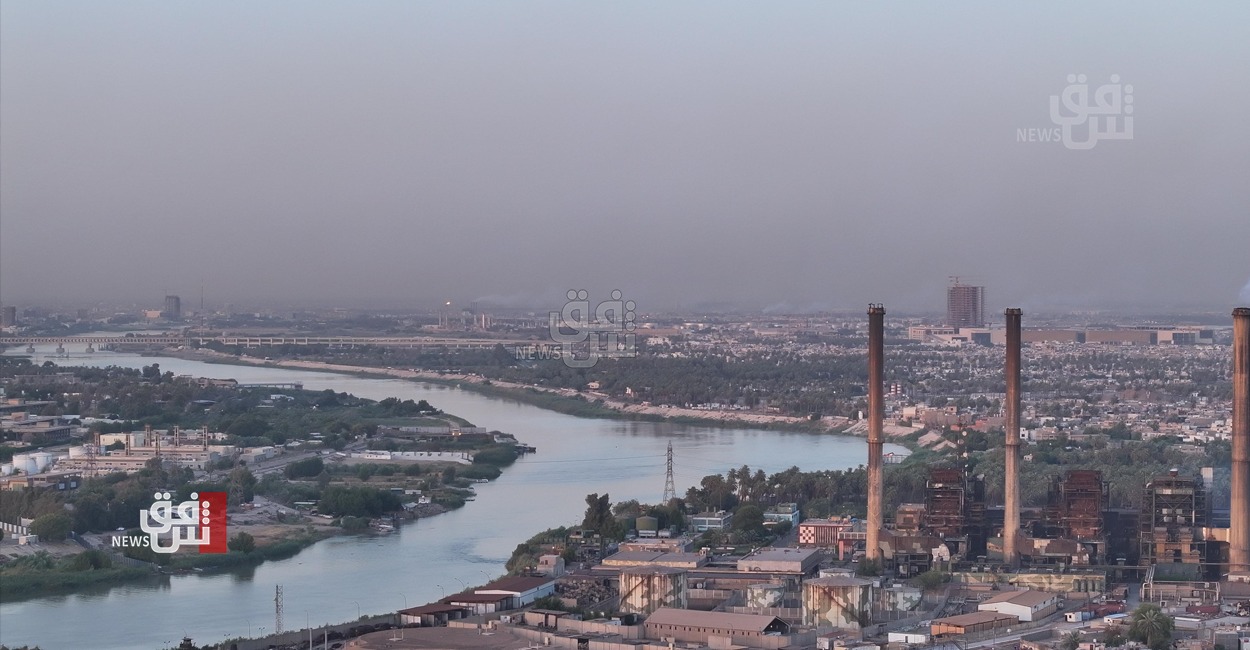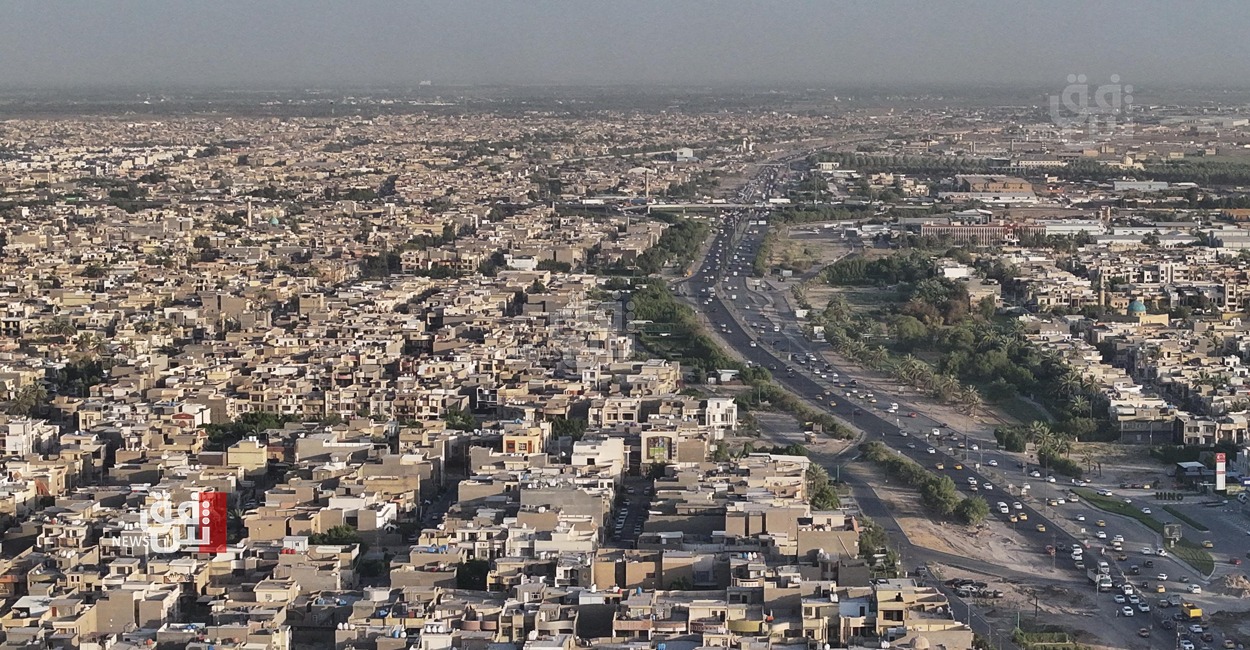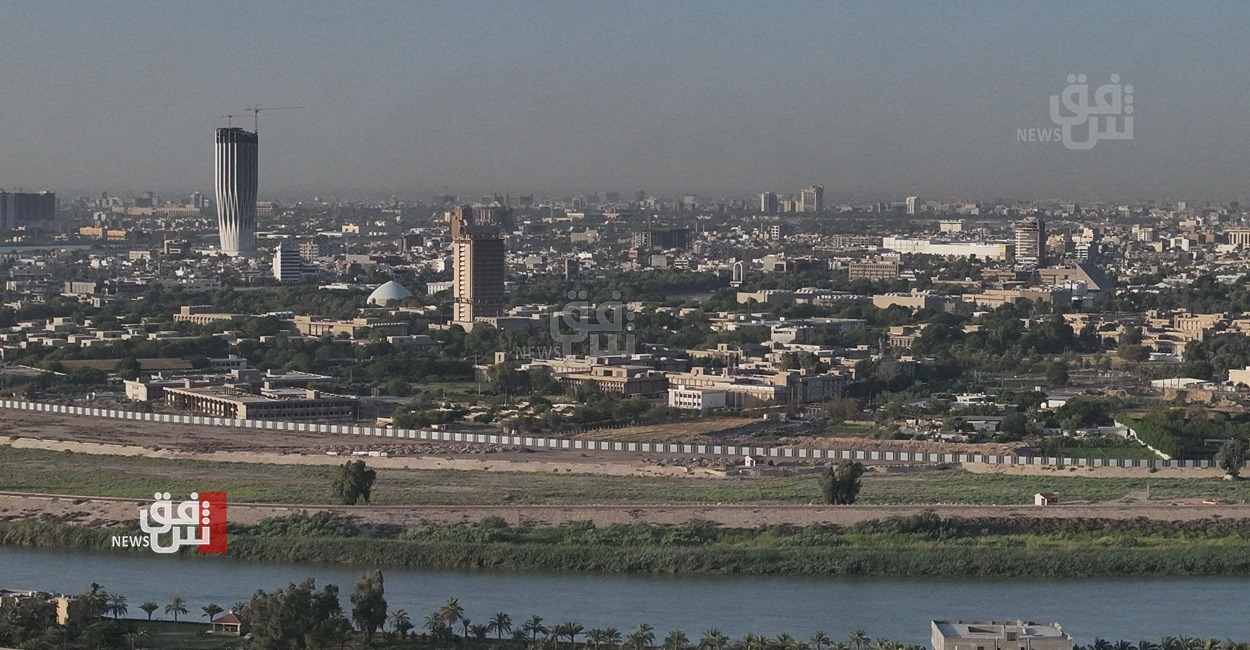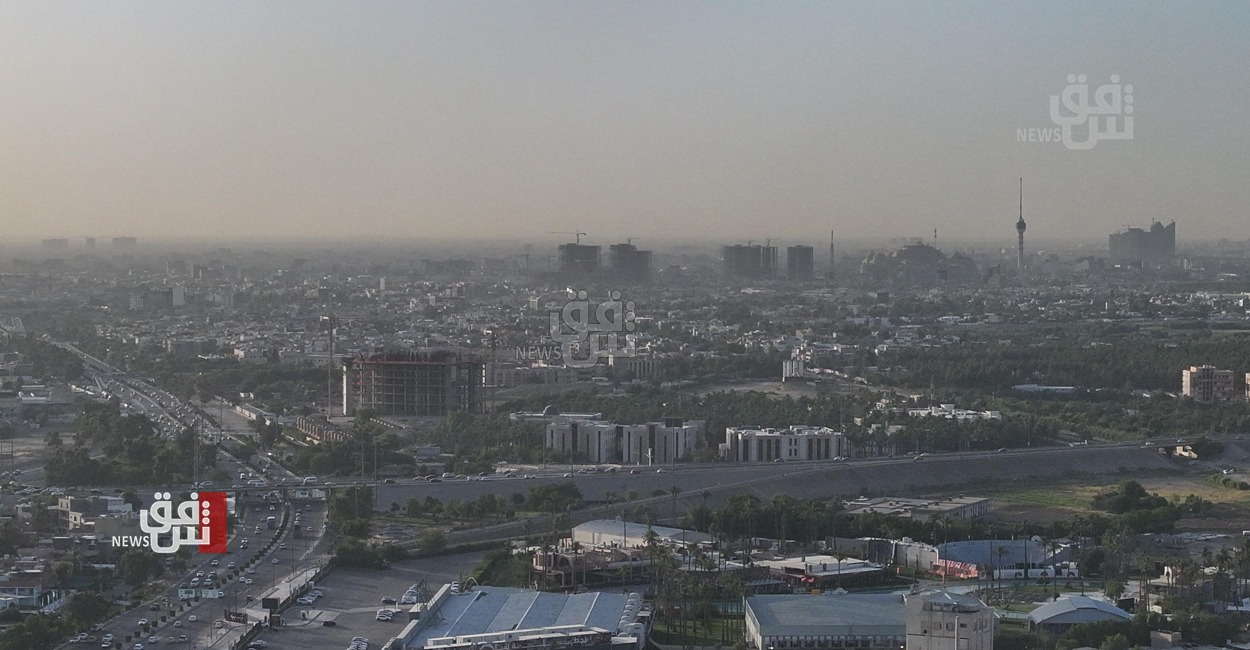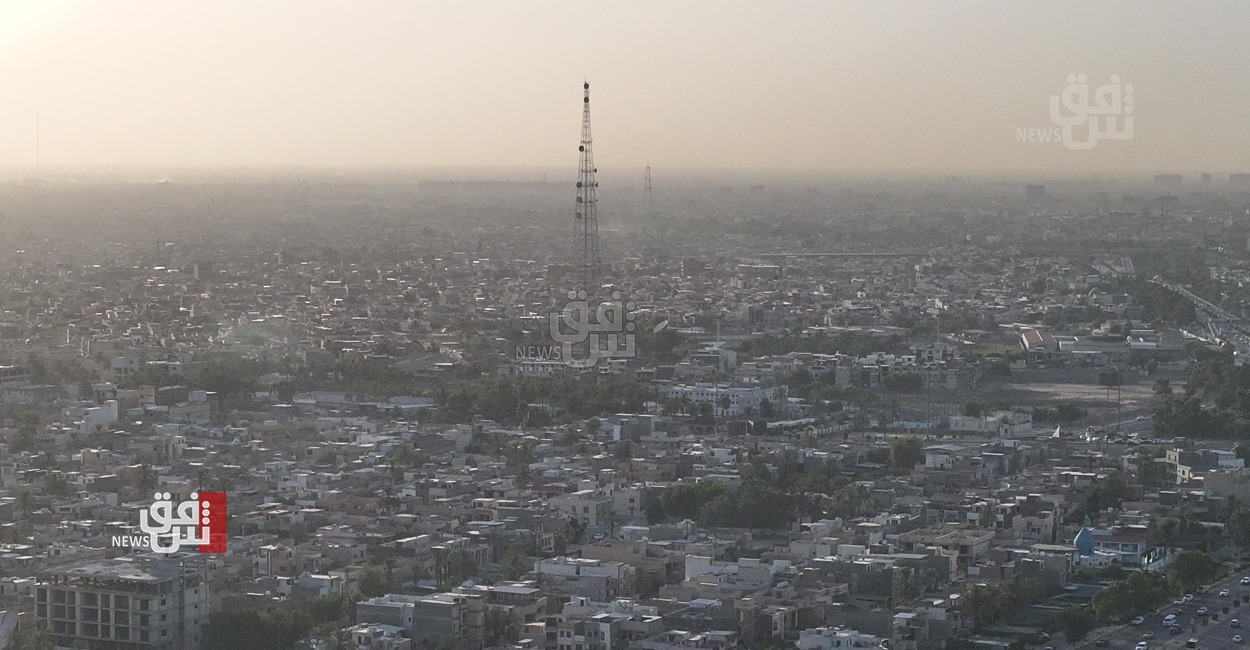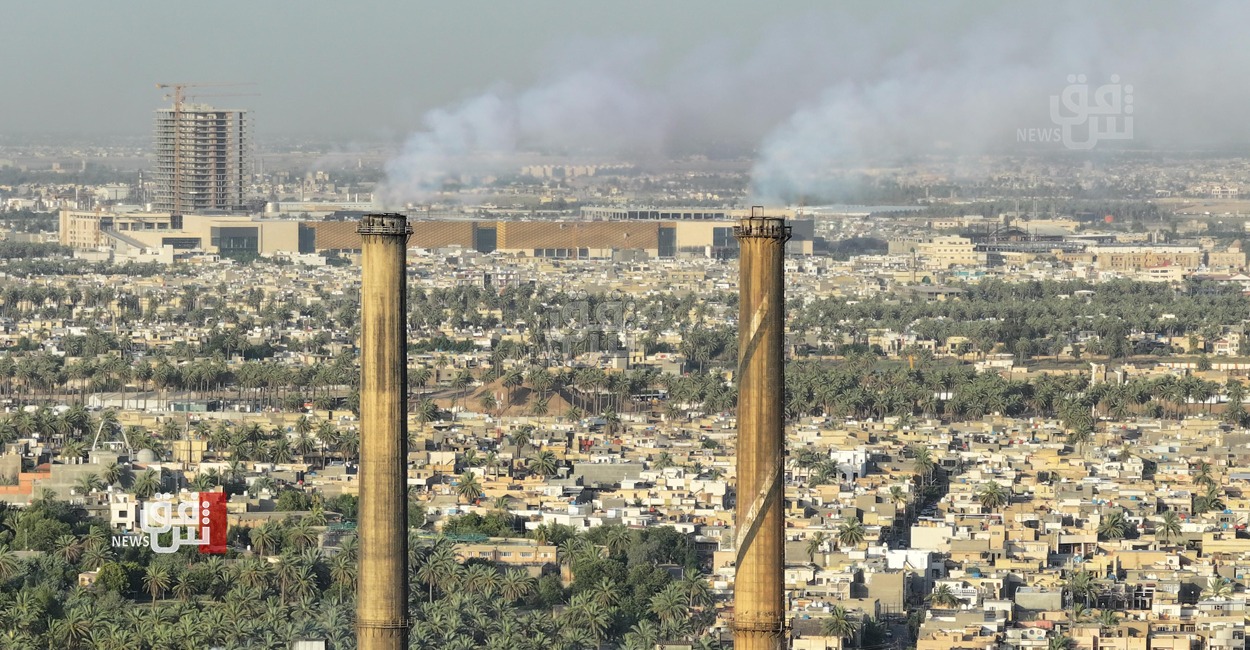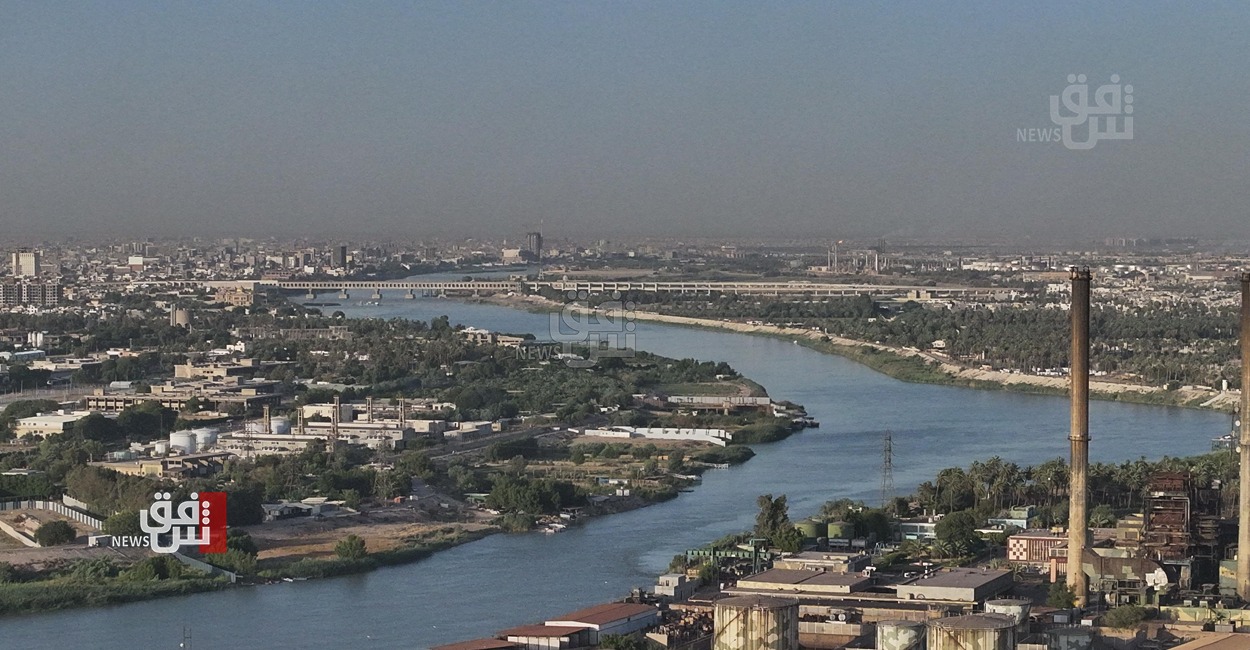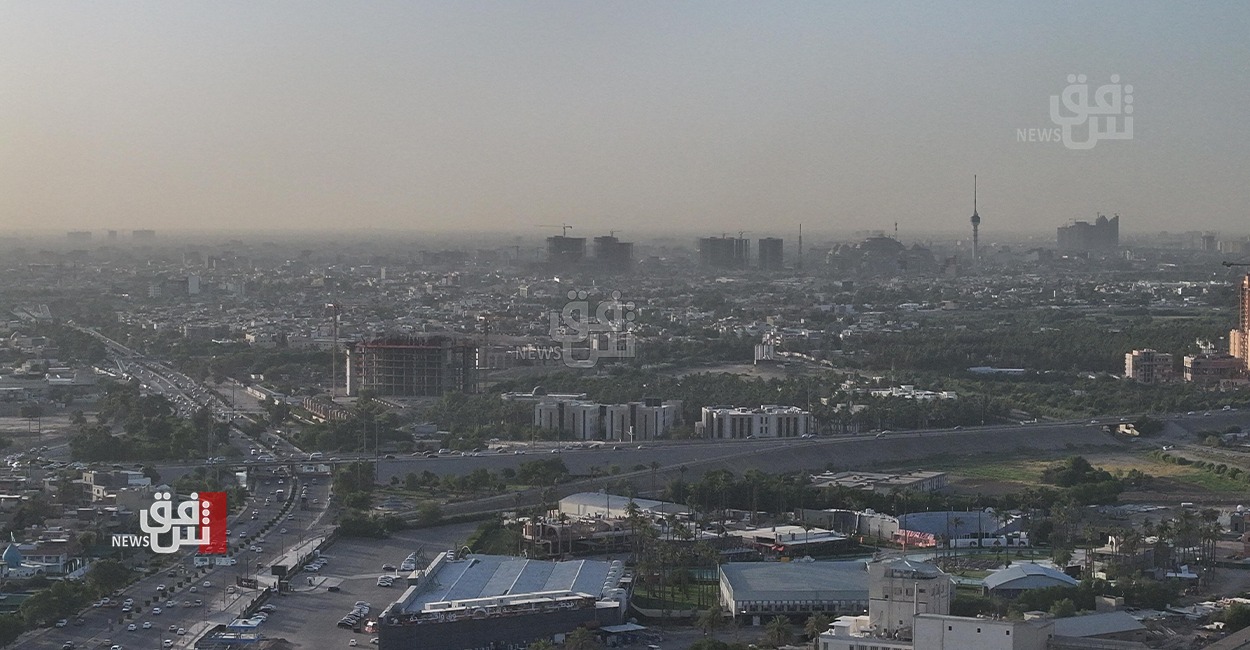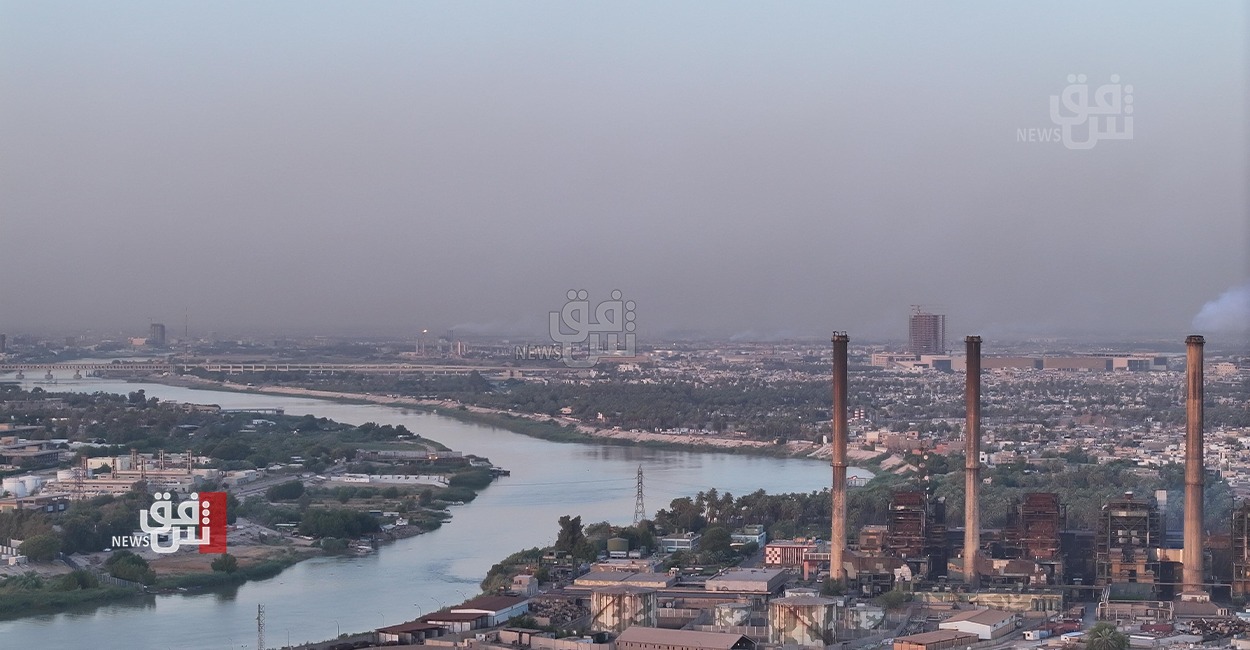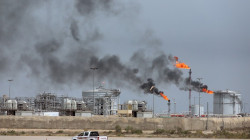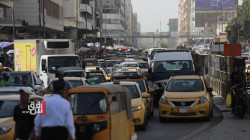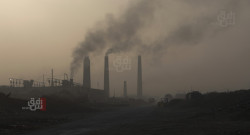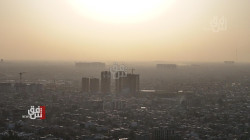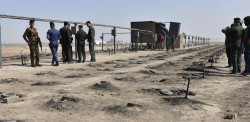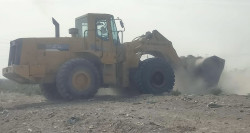Shafaq News exposes Baghdad's environmental crisis: alarming levels of pollution
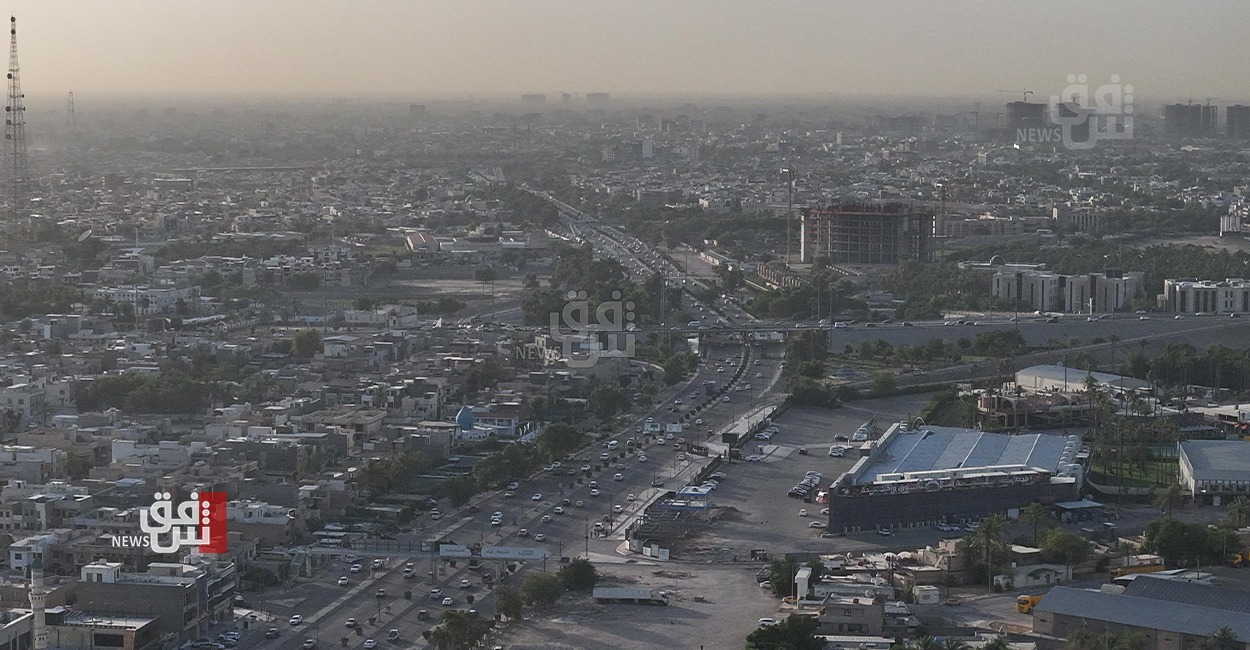
Shafaq News/ The environmental crisis in Baghdad has reached alarming levels, with recent drone footage captured by Shafaq News Agency exposing the severity of the situation.
The drone photos offer a sobering view of Baghdad, spanning from the Saydiya and Dora highways to Mansour, Al-Jadiriya, and Al-Bayaa, including the Dora power plant and the Tigris River. Once considered upscale areas characterized by lush greenery, these regions now bear the brunt of severe pollution.
Transformation of Baghdad's Landscape
The transformation is stark. Areas that once boasted vibrant trees and green spaces now suffer from pervasive environmental pollution. The skies are laden with dust, and clouds of contamination shroud the city, making Baghdad resemble a vast desert devoid of its former greenery and vegetation.
Fadel Al-Gharawi, head of the Strategic Center for Human Rights in Iraq, highlighted the primary source of this pollution: vehicle emissions. According to Al-Gharawi, more than 60% of Baghdad's air pollution stems from internal combustion engines, posing a significant risk to public health.
Health Implications
The deteriorating environmental conditions have led to a surge in health issues among Baghdad's residents. Al-Gharawi noted an increase in cancer rates and respiratory and gastrointestinal diseases, attributing this rise to the high levels of pollutants in the water and air.
Bassem Al-Gharabi, a member of the Parliamentary Health and Environment Committee, corroborated these findings, noting an uptick in pollution-related diseases. He pointed out that southeastern Baghdad, including the modern city of Basmaya, is particularly affected. "Accumulated waste and chemicals have led to water pollution, raising serious concerns about the health of residents and the environment." He said.
Halting Urban Investment Within Baghdad
The drone footage and subsequent reports paint a dire picture of Baghdad's environmental health. According to estimates from the Food and Agriculture Organization (FAO), forest areas in Iraq now account for only 2% of the total land area.
In this context, Yahya Al-Khazali, a member of the Baghdad Governorate Council, stated in a previous interview with Shafaq News Agency, "There is an effort to transform areas in Baghdad into green spaces, and a proposal has been submitted to Prime Minister Mohammed Shia Al-Sudani to halt construction and investment within the capital to reduce population congestion and suffocation due to the proliferation of vertical buildings, and to make way for creating green spaces. Al-Sudani has agreed to this proposal."
Al-Khazali told Shafaq News that "Areas with green spaces suffer from violations and other issues, but Al-Sudani is determined to address these places and transform them into green spaces, including the 5th District, Rashid Camp, and others."
Global Pollution Ranking
A BBC report places Iraq as the second most polluted country globally, following Russia, with an astounding 18 billion cubic meters of gas burned annually. This environmental degradation is further detailed in a report from Numbeo, which shows Iraq's pollution index at 73.59%. The quality of green spaces and parks has plummeted to 38.14%, air pollution stands at 66.99%, drinking water pollution at 55.50%, and noise pollution has risen to 52.06%.
On the other hand, according to IQAir's Live most polluted major city ranking, as of July 8, Baghdad ranks 24th worldwide and fifth in the Arab world after Cairo, Dubai, Riyadh, and Kuwait.
